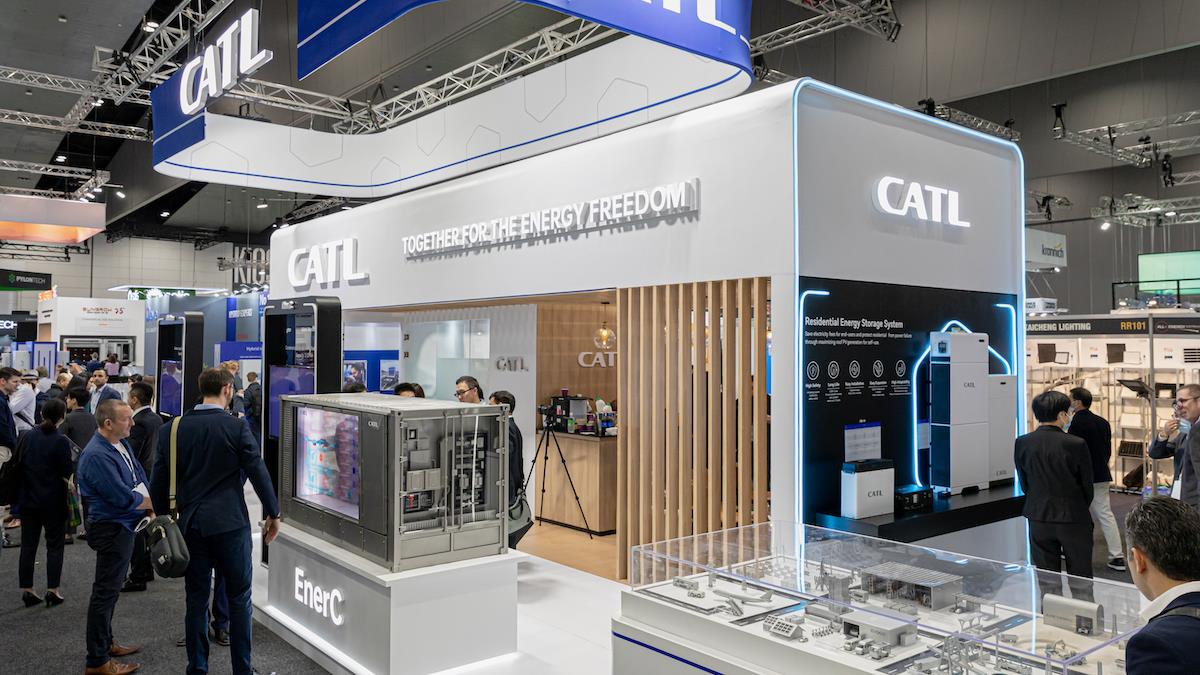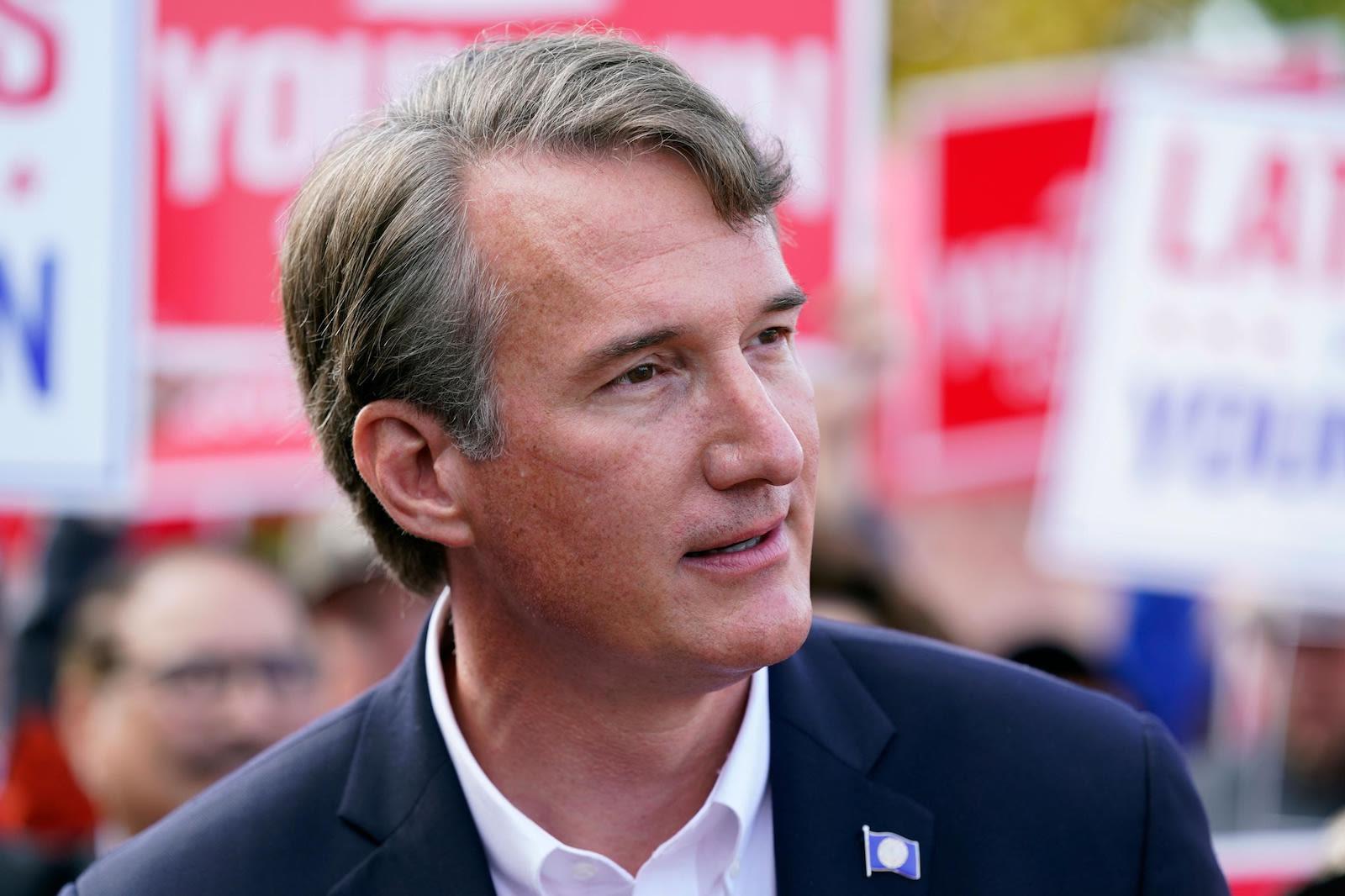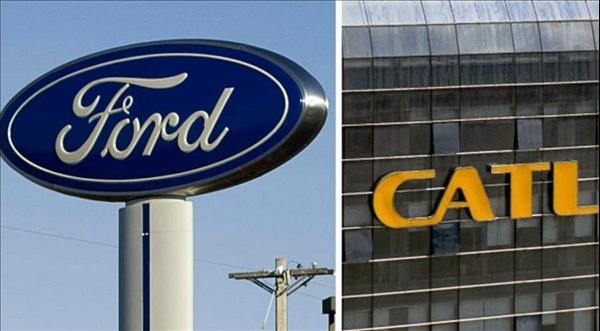(MENAFN- Asia Times) China's Contemporary Amperex Technology Co (CATL) will join hands with Ford Motor Co to produce lithium-iron-phosphate batteries for electric vehicles (EVs) made in Michigan, a move the Fujian-based battery maker hopes will gain and maintain market share in the fast-growing industry.
Ford, the second largest EV maker in the United States after Tesla, said on February 13 it would build a US$3.5 billion battery plant in Detroit, America's once-robust but now flagging auto-making hub.
CATL announced it will contribute its core technology but not immediately make any capital investments in the deal, which has predictably sparked political controversy in Washington amid the two sides' trade war, tech war and wider strategic rivalry.
Among the battery deal's critics is Virginia Governor Glenn Youngkin, who last month likened it to a Trojan horse for the Chinese Communist Party. Beijing has countered that the US should provide a fair and non-discriminatory business environment for Chinese companies as per its free trade obligations.
Chinese commentators have said CATL's entry to the American market on the basis of its technology alone marks a milestone for the country. Others have said CATL had little choice but to follow in the footsteps of its South Korean and Japanese rivals or risk losing competitiveness, profits and market share.

Contemporary Amperex Technology Co (CATL) is the world's largest lithium-ion battery manufacturer for e-vehicles. Photo: catl.com
They said as major EV makers and users are based in North America and Europe, it is essential that battery suppliers move their production lines closer to their customers.
CATL's global market share reached 37% last year while South Korea's LG Energy Solution had 13.6%, according to SNE Research. BYD, a Chinese electric car maker, had 13.6% while Japan's Panasonic had 7.3%, the same research showed.
In February 2022, the Biden administration unveiled a plan to allocate $5 billion to states to fund EV chargers over the next five years. In May, it said it would begin a $3.1 billion plan to boost domestic battery manufacturing.
Last March, LG Energy Solution said it would invest $5.3 billion to build battery cell factories in Arizona in the US and Ontario in Canada over the next two years. The South Korean firm later said it planned to add six plants in North America by 2025. On January 23 this year, it said it would partner with Honda Motor to build a new battery plant in Ohio.
Panasonic also said last October it would start building a new battery factory in Kansas.
Last March, media reported that CATL planned to invest $5 billion to build a factory in North America. CATL chairman Robin Zeng said the company would enter US markets at all costs as most of its rivals had unveiled plans to move closer to their customers in North America.
But CATL's plan has remained uncertain amid rising US-China tensions and rivalry. Last month, Governor Youngkin withdrew Virginia's bid for a Ford EV battery plant due to the fact that it would use CATL's technology.
On Monday, Ford's chief executive Jim Farley said the company's new plant in Michigan would produce both lithium-iron-phosphate and nickel-cobalt-manganese batteries beginning in 2026.
Beijing, meanwhile, is calling at the highest level for fair treatment in the US battery market.“Normal economic and trade cooperation between Chinese and US companies should not be politicized,” Chinese Foreign Ministry spokesman Wang Wenbin said on Tuesday.
Commenting on Youngkin's rhetoric and moves, Wang said certain individuals in the US should abandon ideological bias and stop overstretching the concept of national security and suppressing foreign companies. He said the US should create an open, fair, just and non-discriminatory environment for Chinese companies to invest and operate.

Republican Governor Glenn Youngkin doesn't want CATL in his home state. Image: CNN / Screengrab
Chinese commentators have mixed views of the battery kerfuffle. One automobile columnist writing under the name Dao Ge said the Ford-CATL deal marked a big milestone for China's auto sector.
He noted that over the past three decades US and Japanese automakers had exported their technologies to win market share in China. He said China now has a full auto supply chain and can export its battery technology to likewise win global market share in the sector.
A Beijing-based writer likened the deal to a perfect“curveball” that will help CATL enter North American markets without sparking any regulatory disputes. Because CATL will not invest directly in the new plant, Ford will still be able to enjoy subsidies from the US government that bar foreign participation, he wrote.
The writer, like others, said it was urgent for CATL to close the Ford deal as most of its rivals had already started building battery plants in the US and Canada.
read: china bans export of core solar panel technologies
Follow Jeff Pao on Twitter at @jeffpao3

























Comments
No comment